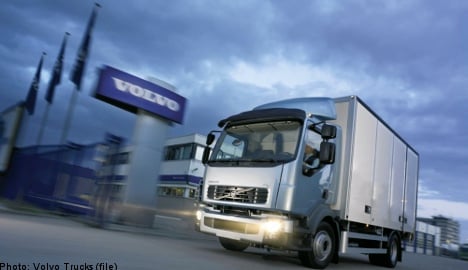“We have agreed with safety authorities in North America to recall these trucks because when they are not serviced regularly and a joint in the steering mechanism is not oiled, water can get in and it can rust and the steering mechanism can break,” Volvo spokesman Tommy Kohle told AFP.
Volvo, which plans to recall all trucks of the model specifically built for the North American market between 2001 and 2006, was aware of around 10 accidents linked to the problem, he said, adding that in two of the cases people had been hurt.
“But remember, that is out of 77,000 trucks that are between five and 10 years old and that have perhaps driven on average 150,000 kilometres (93,205 miles), so there is really a very small risk,” Kohle said.
He pointed out that the problem was usually discovered during the annual safety check, but that Volvo wanted to play it safe and change the steering mechanism on all the trucks.
The recall was still in the planning phase, he said, adding that by mid-August Volvo repair shops should be equipped to start fixing the problem.



 Please whitelist us to continue reading.
Please whitelist us to continue reading.
Member comments